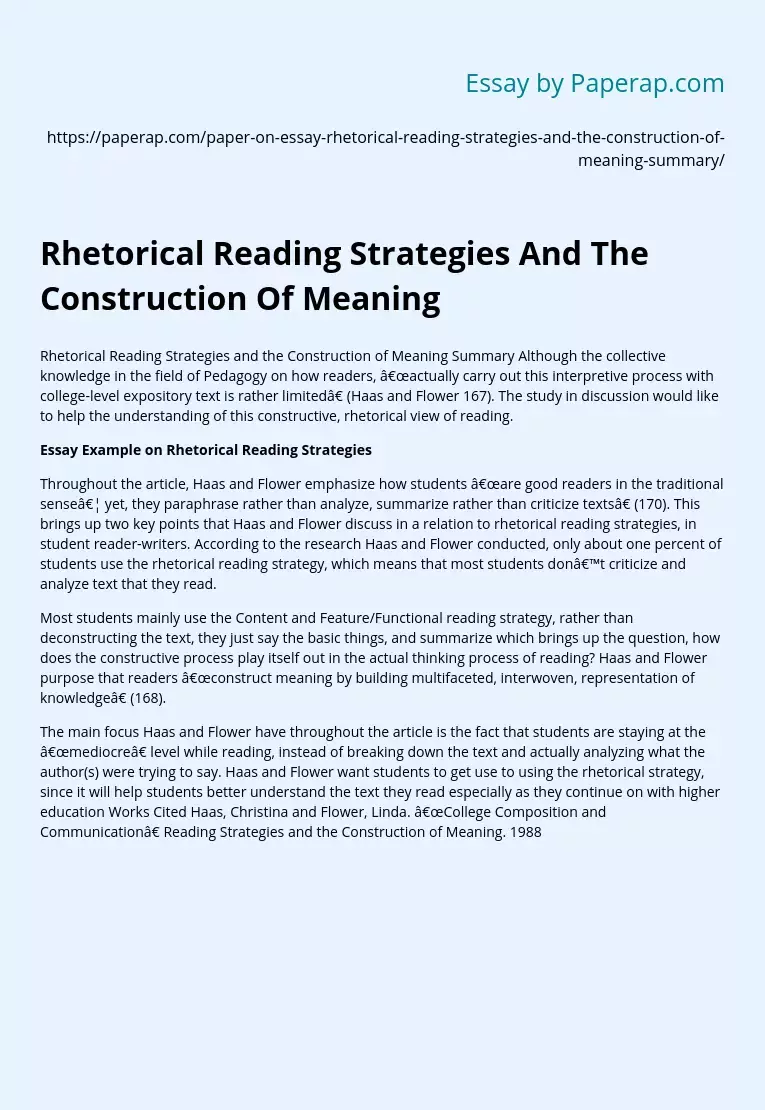Rhetorical Reading Strategies and the Construction of Meaning Summary Although the collective knowledge in the field of Pedagogy on how readers, “actually carry out this interpretive process with college-level expository text is rather limited” (Haas and Flower 167). The study in discussion would like to help the understanding of this constructive, rhetorical view of reading.
Essay Example on Rhetorical Reading Strategies
Throughout the article, Haas and Flower emphasize how students “are good readers in the traditional sense… yet, they paraphrase rather than analyze, summarize rather than criticize texts” (170).
This brings up two key points that Haas and Flower discuss in a relation to rhetorical reading strategies, in student reader-writers. According to the research Haas and Flower conducted, only about one percent of students use the rhetorical reading strategy, which means that most students don’t criticize and analyze text that they read.
Most students mainly use the Content and Feature/Functional reading strategy, rather than deconstructing the text, they just say the basic things, and summarize which brings up the question, how does the constructive process play itself out in the actual thinking process of reading? Haas and Flower purpose that readers “construct meaning by building multifaceted, interwoven, representation of knowledge” (168).
The main focus Haas and Flower have throughout the article is the fact that students are staying at the “mediocre” level while reading, instead of breaking down the text and actually analyzing what the author(s) were trying to say. Haas and Flower want students to get use to using the rhetorical strategy, since it will help students better understand the text they read especially as they continue on with higher education Works Cited Haas, Christina and Flower, Linda.
“College Composition and Communication” Reading Strategies and the Construction of Meaning. 1988
Rhetorical Reading Strategies And The Construction Of Meaning. (2019, Nov 27). Retrieved from https://paperap.com/paper-on-essay-rhetorical-reading-strategies-and-the-construction-of-meaning-summary/

